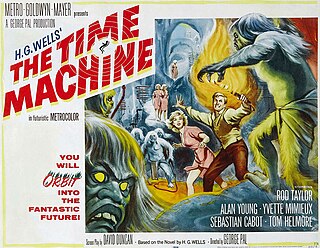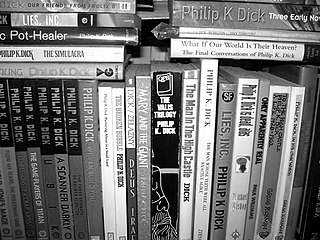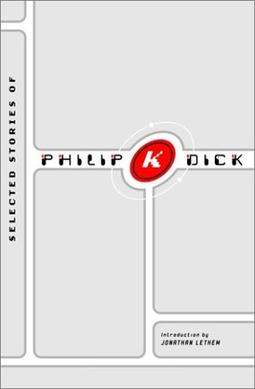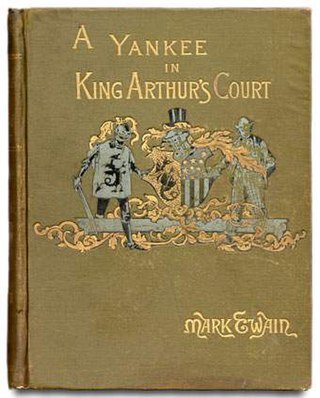Related Research Articles

Philip Kindred Dick, often referred to by his initials PKD, was an American science fiction writer and novelist. He wrote 44 novels and about 121 short stories, most of which appeared in science fiction magazines during his lifetime. His fiction explored varied philosophical and social questions such as the nature of reality, perception, human nature, and identity, and commonly featured characters struggling against elements such as alternate realities, illusory environments, monopolistic corporations, drug abuse, authoritarian governments, and altered states of consciousness. He is considered one of the most important figures in 20th-century science fiction.
"Second Variety" is a science fiction novelette by American writer Philip K. Dick, first published in Space Science Fiction magazine, in May 1953. Set in a world where war between the Soviet Union and United Nations has reduced most of the world to a barren wasteland, the story concerns the discovery, by the few remaining soldiers left, that self-replicating robots originally built to assassinate Soviet agents have gained sentience and are now plotting against both sides. It is one of many stories by Dick examining the implications of nuclear war, particularly after it has destroyed much or all of the planet.

Bruce Bethke is an American author best known for his 1983 short story "Cyberpunk" which led to the widespread use of the term for the cyberpunk subgenre of science fiction. His novel, Headcrash, won the Philip K. Dick Award in 1995 for SF original paperback published in the US.

X Minus One is an American half-hour science fiction radio drama series that was broadcast from April 24, 1955, to January 9, 1958, in various timeslots on NBC. Known for high production values in adapting stories from the leading American authors of the era, X Minus One has been described as one of the finest offerings of American radio drama and one of the best science fiction series in any medium.

Nina Kiriki Hoffman is an American fantasy, science fiction and horror writer.

Carol Emshwiller was an American writer of avant-garde short stories and science fiction who won prizes ranging from the Nebula Award to the Philip K. Dick Award. Ursula K. Le Guin has called her "a major fabulist, a marvelous magical realist, one of the strongest, most complex, most consistently feminist voices in fiction." Among her novels are Carmen Dog and The Mount. She also wrote two cowboy novels, Ledoyt and Leaping Man Hill. Her last novel, The Secret City, was published in April 2007.

Richard Allen Lupoff was an American science-fiction and mystery author, who also wrote humor, satire, nonfiction and reviews. In addition to his two dozen novels and more than 40 short stories, he also edited science-fantasy anthologies. He was an expert on the writing of Edgar Rice Burroughs, and had an equally strong interest in H. P. Lovecraft. He also co-edited the non-fiction anthology All in Color For a Dime, which has been described as "the very first published volume dedicated to comic book criticism"; as well as its sequel, The Comic-Book Book.

Time travel is a common theme in fiction, mainly since the late 19th century, and has been depicted in a variety of media, such as literature, television, film, and advertisements.

The Unteleported Man is a 1966 science fiction novel by American writer Philip K. Dick, first published as a novella in 1964. It is about a future in which a one-way teleportation technology enables 40 million people to emigrate to a colony named Whale's Mouth on an Earth-like planet, which advertisements show as a lush green utopia. When the owner of a failing spaceship travel firm tries to take the 18-year flight to the colony to bring back any unhappy colonists, powerful forces try to stop him from finding out the truth.

The bibliography of Philip K. Dick includes 44 novels, 121 short stories, and 14 short story collections published by American science fiction author Philip K. Dick during his lifetime.

The Best of Philip K. Dick is a collection of science fiction stories by American writer Philip K. Dick. It was first published by Del Rey Books in 1977 as a volume in its Classic Library of Science Fiction. Many of the stories had originally appeared in the magazines Planet Stories, Fantasy and Science Fiction, Space Science Fiction, Imagination, Astounding Stories, Galaxy Science Fiction, Amazing Stories, Science Fiction Stories and Startling Stories, as well as the anthologies Dangerous Visions and Star Science Fiction Stories No.3.

The Collected Stories of Philip K. Dick is a collection of 118 science fiction stories by American writer Philip K. Dick. It was first published by Underwood-Miller in 1987 as a five volume set. See Philip K. Dick bibliography for information about the mass market reprints.

The Little Black Box is a collection of science fiction stories by American writer Philip K. Dick. It was first published by Gollancz in 1990 and reprints Volume V of The Collected Stories of Philip K. Dick. It had not previously been published as a stand-alone volume. Many of the stories had originally appeared in the magazines Worlds of Tomorrow, Galaxy Science Fiction, Amazing Stories, Fantasy and Science Fiction, Famous Science Fiction, Niekas, Rolling Stone College Papers, Interzone, Playboy, Omni and The Yuba City High Times.

The Eye of the Sibyl is a collection of science fiction stories by American writer Philip K. Dick. It was first published by Citadel Twilight in 1992 and reprints Volume V of The Collected Stories of Philip K. Dick, omitting the story "We Can Remember It for You Wholesale". Many of the stories had originally appeared in the magazines Worlds of Tomorrow, Galaxy Science Fiction, Amazing Stories, Fantasy and Science Fiction, Famous Science Fiction, Niekas, Rolling Stone College Papers, Interzone, Playboy, Omni and The Yuba City High Times.

Selected Stories of Philip K. Dick is a collection of science fiction stories by American writer Philip K. Dick. It was first published by Random House in 2002. Many of the stories had originally appeared in the magazines Planet Stories, Fantasy and Science Fiction, Imagination, Space Science Fiction, Astounding, Beyond Fantasy Fiction, Orbit, Galaxy Science Fiction, Fantastic Universe, Amazing Stories, Rolling Stone College Papers, Omni and Playboy.

"The Commuter" is a science fiction short story by American writer Philip K. Dick, first published in the August-September 1953 issue of Amazing Stories. It has been reprinted over 20 times, including Croatian, Dutch, French, German and Italian translations. As with much of Dick's fiction, it is an exploration of the boundary of existence.
"Orpheus with Clay Feet" is a science fiction short story by American writer Philip K. Dick, originally published in 1964 in Escapade magazine. The story has a self referential time travel theme, and was published under the pen name "Jack Dowland".

A time slip is a plot device in fantasy and science fiction in which a person, or group of people, seem to accidentally travel through time by unknown means, or by a means unknown to the character(s).

Timescapes: Stories of Time Travel is an anthology of science fiction short stories on time travel edited by Peter Haining. It was first published in the United Kingdom hardcover by Souvenir Press in August 1997. The first American edition was issued in hardcover under the alternate title Time Travelers: Fiction in the Fourth Dimension by Barnes & Noble Books in 1998.
Sarah Pinsker is an American science fiction and fantasy author. She is a nine-time finalist for the Nebula Award, and her debut novel A Song for a New Day won the 2019 Nebula for Best Novel while her story "Our Lady of the Open Road won the 2016 Nebula Award for Best Novelette. Her novelette "Two Truths and a Lie" received both the Nebula Award and the Hugo Award. Her fiction has also won the Philip K. Dick Award, the Theodore Sturgeon Award and been a finalist for the Hugo, World Fantasy, and Tiptree Awards.
References
- ↑ "The Vintage Book of Amnesia: An Anthology of Writing on the Subject of Memory Loss, edited by Jonathan Lethem", reviewed by Graham Sleight, at Strange Horizons ; published September 4, 2006; retrieved October 19, 2018.
- ↑ Time Loop, at The Encyclopedia of Science Fiction ; first published November 27, 2007; retrieved October 19, 2018
- ↑ Dick, Philip K. (1987). The Collected Stories of Philip K. Dick. Vol. 5: We Can Remember It for You Wholesale. United Kingdom: Orion Publishing Group. p. 392. ISBN 1-85798-948-1.